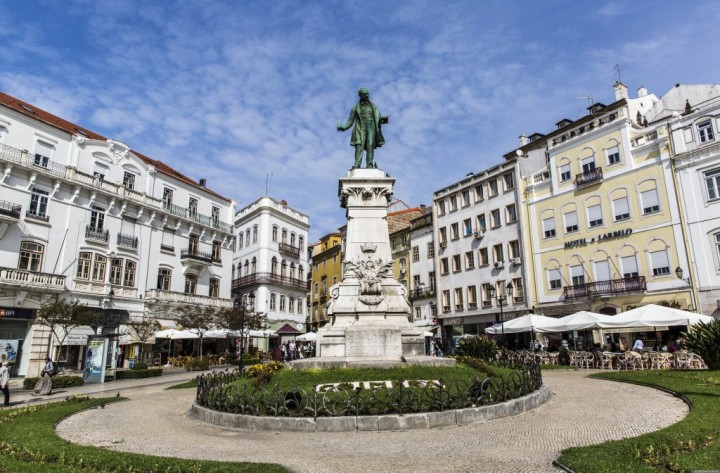Interesting historical facts about Coimbra
Not every tourist knows about the existence of Coimbra or considers it not worthy of much attention, but in different periods of Portugal's development this city has played an important role in the political, cultural and intellectual life of the country. Perhaps this fact´s selection will change your perception of Coimbra and make you want to visit it!

Coimbra was the capital of Portugal from 1143 to 1255. After proclaiming the independence of the County of Portugal from the Kingdom of León, the first king defiantly moved from Guimarães to Coimbra, cementing the change in internal and external politics.
The first royal dynasty resided in Coimbra and the first six kings were born in the palace that today houses the University of Coimbra.
The two first kings of Portugal, Afonso I and Sancho I, rest in the church of Santa Cruz (Holy Cross). This monastery was one of the most powerful monasteries in medieval Portugal and was the place where the first laws of the country were issued.
The oldest university in Portugal and one of the oldest in Europe is in Coimbra. It was founded by King Dinis in 1290 in...Lisbon, but did not take root there, and from 1537 the university was finally moved to Coimbra. As it was the only secular university in the Portuguese empire until 1911.
St Anthony of Padua studied in Coimbra, at the Monastery of Santa Cruz, as an Augustinian monk.
In the Middle Ages, Coimbra had a cultural and religious triangle of three communities, Christian, Jewish and Muslim. Rare is the completely peaceful coexistence of the three. It is therefore a pity that later one of the three courts of the Portuguese Inquisition operated in Coimbra.
The Market Square was an important place of commerce frequented by all the people of the city. Using the prominence of the square, it was there that the Inquisition carried out "acts of faith" or, as we know them, auto-da-fé.
The first and largest college of the Society of Jesus or Jesuits operated in Coimbra. After the abolition of this order in 1773, the college building went to the University and the church to the Bishop of Coimbra, which became the New Cathedral.
The first Japanese to set foot on European soil rests in the New Cathedral of Coimbra.
The famous Portuguese Jesuit, Padre António Vieira, missionary, orator and philosopher, who advocated the rights of natives in the colonies, the abolition of the slave trade, the abolition of the division of believers into old and new Christians (baptised Jews) and the end of persecution against them, criticising the Holy Inquisition itself and the behaviour of priests, lived in Coimbra for 2 years, namely at the Jesuit College, awaiting the trial of the Inquisition for his speeches.
Come to Coimbra, the city will fascinate you with its atmosphere!
Publication date: 28 November, 2017